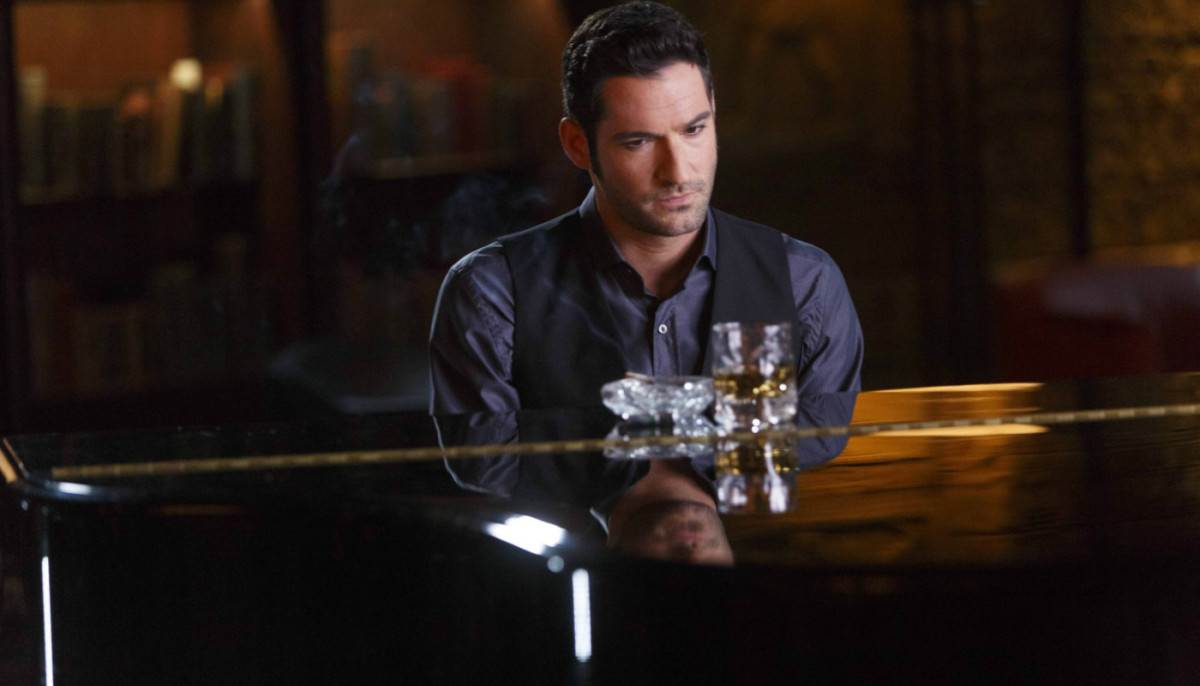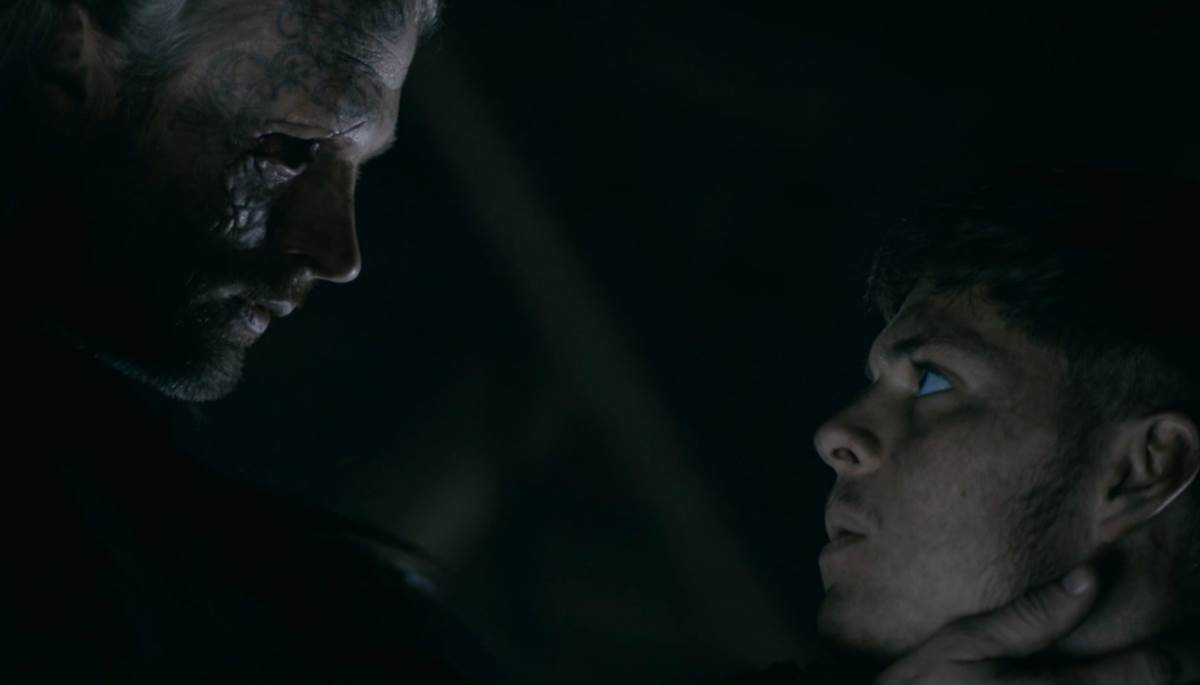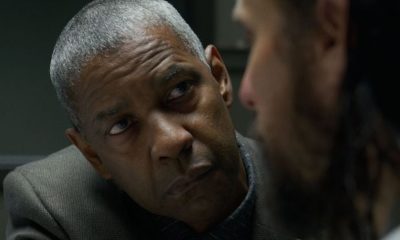Celebrities
Fact-Checking ‘Lee Daniels’ The Butler’
 TWC
TWC
For all the unlikely casting of U.S. presidents in “Lee Daniels’ The Butler” (Robin Williams as Ike? James Marsden as JFK? Uh… okay…), the movie’s highly subjective recreation of history actually seems to work. Maybe the actors aren’t up to the task of playing such formidable real-life titans, but then, as seen by the long-serving White House manservant of the movie’s title, these presidents are all just men, overwhelmed by the burdens of politics, world events, and history’s eventual judgment. He sees them all at their most vulnerable and proves the old adage that no man is a hero to his valet.
Still, as subjective as the movie is about the many presidents that Forest Whitaker’s character serves and the crises they address while he pours their coffee, it holds pretty close to the historical record. In fact, the movie takes its greatest liberties not with the presidents but with the butler and his family life. In the movie, his name is Cecil Gaines, he serves seven presidents over 30 years, and he has two sons – one who’s an activist in all the major Civil Rights protests of the 1960s and one who willingly goes off to fight in Vietnam. In real life, however, the butler’s name was Eugene Allen, he served eight presidents over 34 years, and he had one son.
You can read the details of Allen’s remarkable life in Wil Haygood’s 2008 Washington Post article “A Butler Well Served by This Election,” and Haygood’s recent book “The Butler: A Witness to History.” As for how the movie’s depictions of major historical figures match up against the actual record, here are the details. (Spoliers follow.)
Dwight D. Eisenhower: In the movie, Cecil’s first day at the White House coincides with Ike’s intervention in the Central High School integration imbroglio in Little Rock, Arkansas. Cecil muses to himself that it’s the first time he’s seen a white man stick his neck out to help black people. Later on, Cecil sees the former D-Day general and current leader of the free world taking time off to paint a flower-strewn landscape.
In fact, Allen began working at the White House under Eisenhower’s predecessor, Harry S. Truman. But there are photos of Allen serving coffee to Eisenhower and his advisers during the Little Rock crisis, just as the movie depicts. Also, Eisenhower really did paint landscapes and portraits as a hobby, and Allen kept one of the president’s paintings on display at his own house in northwest Washington, D.C.
John F. Kennedy: The movie’s JFK suffers so much from Addison’s disease and other ailments that he can barely move; at one point, Cecil finds him prone on the bedroom floor and has to help him stand up. He also takes lots of medicine; Cecil estimates it at 103 pills a day. Cecil reads bedtime stories to little Caroline Kennedy. After the assassination, a distraught Jackie Kennedy gives Cecil one of the president’s neckties as a memento.
The movie’s assertions about JFK’s medical history are borne out by presidential historian Robert Dallek’s research. In addition to Addison’s disease, he endured several digestive tract and back ailments that were so painful that even simple motions like reaching across his desk or tying his shoe were excruciating. As a result, the president was on eight to 12 different medications at any given time, though it’s not clear how many pills per day that amounted to. After his assassination, Jackie invited Allen as a guest to the funeral, but he chose to stay behind at the White House and serve as needed. He comforted Caroline, who was just shy of her sixth birthday at the time. Jackie did give Allen one of JFK’s ties, which he framed and displayed at his home.
Lyndon B. Johnson: Cecil is a witness as LBJ barks orders to underlings while seated on the presidential toilet, with the bathroom door open. Cecil admires Johnson’s passage of landmark Civil Rights legislation but holds his tongue about Johnson’s prosecution of the Vietnam War, even though Cecil has a son, Charles, who fights and ultimately dies in Vietnam.
According to Dallek, this was a common Johnson tactic, one designed to unnerve and intimidate whomever Johnson was talking to. Allen did have a son named Charles who served in Vietnam, but Charles came back alive.
Martin Luther King Jr.: Cecil’s son Louis, a longtime Civil Rights activist, is a close associate of Dr. King’s, close enough to accompany him on his fatal trip to Memphis in 1968. There, Louis sheepishly admits that his father is a butler, but Dr. King sees no shame in that profession, asserting that Cecil is furthering the cause and subverting stereotypes by presenting an image of a black man who’s industrious and dignified. When King is assassinated, blacks in Washington riot, forcing a frightened Cecil to abandon his car and walk to work.
In real life, there was no Louis, but Allen did meet Dr. King during a White House visit, when the Civil Rights leader made a point of meeting and complimenting the White House’s all-black service staff. Allen certainly was industrious; in 34 years, he never took a sick day. The movie’s account of Allen’s encounter with rioters after King’s death comes from Haygood’s interviews with Allen.
Richard M. Nixon: In an awkward encounter that’s an apparent attempt at community outreach, Vice President Nixon visits the White House’s all-black service staff when he’s campaigning for president in 1960 and gives them all pro-Nixon buttons. Fourteen years later, Cecil encounters a defiant President Nixon one night, listening to the Watergate tapes and vowing not to resign. His slurred speech suggests drunkenness.
According to Haygood, Allen found Nixon to be shrewd, secretive, and a little distant. As Eisenhower’s vice president, he actually had a better Civil Rights record than his 1960 rival, Senator John F. Kennedy, but African-American voters still overwhelmingly supported Kennedy. Nixon’s 1968 campaign was criticized for his “Southern Strategy,” appealing to voters a Nixon campaign strategist referred to as “Negrophobe whites,” but once in office, he did more to further school integration than any of his predecessors. Nixon’s late-night drinking and defiance in the final months of his presidency has been documented by such colleagues as then-Secretary of State Henry Kissinger.
Ronald and Nancy Reagan: In a scene suggesting that the president’s Alzheimer’s disease was already evident while he was in office, Reagan asks Cecil to go on a “secret mission” of philanthropy behind Nancy’s back. To honor his 30 years of service, Nancy invites Cecil and his wife Gloria to a state dinner as guests. Talking to Senator Nancy Kassebaum, President Reagan remains steadfast against sanctions for South Africa over apartheid, but in private, he expresses doubts to Cecil, worrying that he’s on the wrong side of history.
In real life, many Reagan observers, from his son Ron to various administration insiders, saw signs of Reagan’s eventual senility during his White House years. The Reagans did invite Allen and his wife Helene to be guests at a state dinner in 1986. On South Africa, Reagan preferred a policy of “constructive engagement” (that is, diplomacy with supposed moderates in the South African government) over sanctions, but Congress overruled his veto of economic sanctions against the country. If Reagan had any doubts about his hardline policy against sanctions, history has not recorded them.
Barack Obama: Two decades after his retirement, Cecil and Gloria are so ready to vote for Obama in 2008 that they make practice runs to their polling place. Sadly, just hours before the vote, Gloria dies. Cecil is invited to Obama’s inauguration ceremony.
That sounds like a contrivance only a screenwriter could invent, but it’s true; Helene Allen, Eugene’s wife of 65 years, died just hours before she was to go pull the lever for Obama. Still, Eugene Allen did live long enough to attend Obama’s inauguration and to see a black man serve in the Oval Office instead of just serving coffee to the occupant of the Oval Office. Eugene Allen died at age 90 in 2010.
Gallery | Best Movies of 2013 (So Far)
- 25. ‘The Great Gatsby’
Why We Loved It: A bore or an overwhelming spectacle, an inventive re-imagining or an insult to the novel — Baz Luhrmann’s adaptation was called each by critics and audiences alike. Yet regardless of whose team you’re on, it must be said that “The Great Gatsby” is a bold endeavor that succeeds in being what it purported to be: a Baz Luhrmann film. The movie is filled with dizzying, dazzling extravagance and a mesh of the modern and the classic. While it has its flaws, “Gatsby” still brings a daring new vision to our era of uninspired remakes and adaptations. — Erin Whitney
- 24. ‘Room 237’
Why We Loved It: The year’s most bizarre documentary explores Stanley Kubrick’s “The Shining” and “what it really means,” but not in any way you’re expecting. Presenting several extensively researched (conspiracy) theories using nothing but film clips ranging from Kubrick’s entire filmography to classic Westerns to ’80s slashers, the film becomes a hypnotic display of evidence that will put you in a trance as you weigh all the possibilities. Was “The Shining” a metaphor for the massacre of Native Americans? Was it a confession that Kubrick helped NASA fake the moon landing? Everything you’ll hear in “Room 237” will sound both outlandish and true, demonstrating that no two people see a movie the same way. — Erick Larnick
- 23. ‘Now You See Me’
Why We Loved It: While the reviews for this magical heist movie were not the best, it struck a nerve with audiences (it received an A- on CinemaScore), and we can understand why. In a summer filled with sequels and superhero epics, it was somewhat refreshing to have a movie with a unique script and premise thrown into the mix. And aside from Morgan Freeman (who, admit it, everyone enjoys watching on-screen), the movie featured one of our favorite underrated and often overlooked actors, Mark Ruffalo (sorry, Jesse Eisenberg). — Laura Larson
- 22. ’42’
Why We Loved It: Jackie Robinson’s story is a compelling one, even for non-baseball fans. The movie appealed to the history-buff in us, and gave us a glimpse into the life and internal struggle of a man who stands for so many different things to so many different people. We loved being introduced to talented newcomer Chadwick Boseman (Robinson), whom we predict we’ll be seeing a lot more of in the near future, and it was also refreshing to see Harrison Ford in a somewhat out-of-the-box role as MLB chairman Branch Rickey. — Dana Taddeo
- 21. ‘World War Z’
Wy We Loved It: Everyone was predicting “World War Z” to be an absolute disaster, what with the reshot ending and rumored fight between its director Marc Forester and star/producer Brad Pitt. Lucky for us, we were all wrong. Instead of a mess, we got a miracle — a harrowing, relatively small-scale apocalypse film featuring a worldwide zombie attack. Sure, it wasn’t like the book (the film was based on Max Brooks’s novel), but it never was going to be. “World War Z” stood on its own, which is a testament to everyone involved — Brad Pitt in particular, who helped drag this thing across the finish line. — Alex Suskind
- 20. ‘The Heat’
Why We Loved It: Sandra Bullock and Melissa McCarthy paired up as tough and funny cops? We’re sold! We’ve wanted to be BFFs with McCarthy ever since her Oscar-nominated turn in “Bridesmaids,” and we’ve wanted to hang out with Bullock since, well, forever. Putting these two in a comedy together was a no-brainer. Though “The Heat” has its critics, the movie was filled with laugh-out-loud moments, and it was awesome to see a buddy-cop film feature two strong female leads for a change. — D.T.
- 19. ‘The Bling Ring’
Why We Loved It: Sofia Coppola does not force an opinion of her characters in “The Bling Ring,” she shows them for what they are: shallow, soulless, and apathetic. While this may make them, and the film itself, less compelling than your typical Hollywood fare, it offers a closer, more honest telling of a true story. Free of extol or harsh criticism, Coppola shows us the fame-obsessed culture we live in, revealing an underlying loneliness and desire for attention that flows through each of her films. Instead of satirizing a current culture like “Spring Breakers” or sympathizing with it like “Frances Ha,” “The Bling Ring” simply puts our times in front of the mirror. — E.W.
- 18. ‘Warm Bodies’
Why We Loved It: With swoony vampires and werewolves running amok in Hollywood these days, it’s refreshing to see a shuffling, slouchy, undead teen — especially one played by handsome British actor Nicholas Hoult — fall for the girl instead. A genius riff on the massively popular zombie genre, as well as a nod to “Romeo and Juliet” and a commentary on our technology-obsessed culture, “Warm Bodies” succeeds as both a rom-com and a spoof, served up with a side of suspense. — L.L.
- 17. ‘Pain and Gain’
Why We Loved It: It’s vintage Michael Bay, but more in line with the “Bad Boys” series than his bloated mega-budget spectacles like “Transformers” or “Pearl Harbor.” Mark Wahlberg, Anthony Mackie, and Dwayne “The Rock” Johnson star as a trio of steroid-injecting gym rats and amateur criminals, whose kidnapping plot quickly escalates into a drug-fueled spectacle of torture, gun battles and twisted dark humor. You know what you’re going to get with Bay at this point (id-driven alpha male escapism with a sexy music video style), but “P & G”‘s secret weapon is Johnson, who pushes his charisma to new limits. — E.L.
- 16. ‘Side Effects’
Why We Loved It: Steven Soderbergh’s slick thriller hinges on something truly unexpected: Channing Tatum, the director’s current go-to man (“Magic Mike,” “Haywire”), doesn’t make it through the first hour. But that’s not why we enjoyed the film. More than making up for the untimely loss of those abs are brilliant performances from Rooney Mara and Jude Law — Mara, as Tatum’s disturbed widow, and Law, her psychiatrist. One of the apparent side effects of the movie is an inability to glimpse the characters’ true intentions until the very end, which is a serious feat of intrigue in this age of transparent villains and too-obvious “twists.” — L.L.
- 15. ‘Blue Jasmine’
Why We Loved It: Fans of Cate Blanchett, rejoice! If you want to see the powerhouse actress in a role where she’s blubbering and dishevelled instead of secure and godlike, then this is your movie. Many critics are calling this Woody Allen’s best film in a long while, and we’re inclined to agree. Great performances and a fun premise make this a wonderful movie treat. — Chris Jancelewicz
- 14. ‘The Conjuring’
Why We Loved It: Like an ice cold drink after a desert trek, “The Conjuring” is that sweet find after a sour slate of horror films — and it has surely been a bad drought lately. James Wan’s film doesn’t necessarily do anything wholly new, it just does everything right. Both an homage and a reworking of horror gimmicks, the film refrains from overindulging (as many do) and instead teases the audience with brief scares until the tension is so high it’s past its boiling point. While its creepy faces, unnerving noises, and disturbing tales are indeed scary, the most terrifying part of “The Conjuring” is the unrelenting anxiety it creates and leaves you with. — E.W.
- 13. ‘Mud’
Why We Loved It: Matthew McConaughey’s career renaissance continues with a lyrical Southern suspense about lost love, lost innocence, and a rickety old boat hanging in a tree. McConaughey is the titular Mud, a mysterious drifter hiding out on a coastal island and on the run from the law, who recruits two young boys in his quest to reunite with his long-lost love (played by Reese Witherspoon) then escape to freedom. With Mud being pursued by dangerous bounty hunters, the boys learn hard truths about heartache, sacrifice, and the pain that is felt with growing up. — E.L.
- 12. ‘Pacific Rim’
Why We Loved It: Sure, it’s loud, but Guillermo del Toro’s Kaiju vs. Jaeger sci-fi epic is also a rollicking CGI spectacle featuring some seriously impressive acting, courtesy of Idris Elba, Charlie Hunnam, and an ass-kicking Rinko Kikuchi. As far as canceling the apocalypse goes, this movie is pure, unbridled, edge-of-your-seat entertainment. — L.L.
- 11. ‘Before Midnight’
Why We Loved It: It’s hard to find a film that depicts the raw emotion of falling in love. However, Richard Linklater’s “Before” trilogy has managed to do it three times. In the third and (possibly) final installment, we once again meet up with Celine (Julie Delpy) and Jesse (Ethan Hawke), now 18 years after the two first ran into each other on a train to Vienna. They’re now married with kids and facing the same types of issues most middle-aged couples face. And that’s what’s so special about this movie and its predecessors: they’re real, they’re vulnerable, and they are unequivocally devoted to its two main characters, who you can’t help but fall in love with yourself. — A.S.
- 10. ‘Fast And Furious 6’
Why We Loved It: The sixth (!) installment of this unlikely hit franchise had everything we wanted: guns, explosions, Vin Diesel jumping over a highway, a kickass fight between two kickass ladies (Gina Carano and Michelle Rodriguez), a car taking down a plane, and Dwayne “The Rock” Johnson. The best thing about “Fast 6” though, was that it didn’t take itself too seriously. This film knew exactly what it was — a big, fun action-packed heist flick made for the masses. Plus, Diesel and the Rock teaming up for the movie’s final fight sequence was the kind of stuff action film junkie dreams are made of. — A.S.
- 9. ‘Star Trek Into Darkness’
Why We Loved It: A mile-a-minute roller-coaster ride, “Star Trek” is a summer blockbuster crafted for Trekkies and non-Trekkies alike. Don’t know who Khan is? Doesn’t matter. The movie still boasts countless action scenes and amazing special effects. Of particular resonance is the now-infamous “space jump” scene, which is about as heart-pounding as they come. — C.J.
- 8. ‘Monsters University’
Why We Loved It: It’s easy to be skeptical of prequels, but Pixar successfully avoids any pitfalls by focusing on the friendship of Mike and Sully. Billy Crystal and John Goodman’s scare pros are second only to Buzz and Woody when it comes to great cartoon duos, and this story exploring their origins as freshman rivals is packed to the brim with hilarious college humor, colorful creative design, and character-driven warmth that will bring a smile to your face. “Monsters U” is one of those rare movies that is magically crafted to rouse pure joy out of audiences, young and old. — E.L.
- 7. ‘Spring Breakers’
Why We Loved It: “Spring Breakers” is not only commendable for its hilarious moments, its honest depiction of girl and party culture, and its bold cinematography and soundtrack. Harmony Korine’s film is ultimately brilliant for creating a discomfort in the audience, causing them to question their reactions as they revel in nostalgia, shake heads in disgust, or embrace it with laughter. “Spring Breakers” becomes whatever the audience allows it to be as Korine probes his viewers as much as he does his characters, reminding us that we can (and more importantly, should) laugh at our culture’s absurdities. — E.W.
- 6. ‘This Is The End’
Why We Loved It: Every Apatow-ian mainstay, plus cameos by celebrities from Rihanna to Emma Watson? Obviously “This Is the End” would be on our best movies of the year list. It was awesome to watch the likes of James Franco, Jonah Hill, and Seth Rogen play exaggerated versions of themselves, especially because alternate universe Franco was obsessed with Rogen, which allowed for some of the movie’s funniest moments. The comedy also marked the directorial debut of writing duo Rogen and Evan Goldberg, a team we think should step behind the camera more often. — D.T.
- 5. ‘Man of Steel’
Why We Loved It: Rebooting a superhero franchise can be tricky. But rebooting one that is considered the godfather of superhero films? That is downright impossible. Unless, of course, you’re Zack Snyder, who managed to pull off a spectacular retelling of Superman in this summer’s “Man of Steel.” The latest incarnation of Krypton’s most famous story featured an all-star cast, with Henry Cavill as the titular hero, Russell Crowe as Jor-El, Kevin Costner as John Kent, Diane Lane as Martha Kent, and Amy Adams as Lois Lane. In addition to the beautiful effects and explosive action sequences, the film featured our favorite villain of 2013 in General Zod (Michael Shannon). Seriously, Michael Shannon should play every villain.
- 4. ‘Despicable Me 2’
Why We Loved It: Besides our favorite gibberish-talking creatures, the Minions, we loved seeing the softer, yet just as hilariously unenthusiastic side of former super-villain Gru (Steve Carell). Adding Kristen Wiig to the cast as Gru’s partner in anti-crime didn’t hurt “Despicable Me 2″‘s appeal either. The movie also hit a nerve with families, specifically the non-traditional ones — you’d be had-pressed to find a family more unusual than one made up of a reformed villain and his three adopted daughters — and we can definitely appreciate that. — D.T.
- 3. ‘Fruitvale Station’
Why We Loved It: While this movie has a few clichés and flaws, you really want to see it for Michael B. Jordan’s performance. It’s not very often that a young actor possesses such undeniable charisma. He lights up the screen in every single scene he’s in (which is, thankfully, most of the movie), and the tragic ending is absolutely devastating. This is a poignant movie for racially contentious times. — C.J.
- 2. ‘The Place Beyond the Pines’
Why We Loved It: Surprisingly raw and the kind of movie that goes in a totally different direction than you expected, “Place Beyond the Pines” is a fascinating multi-generational story about families beset by legacy and expectations. Spread across three separate-but-interacting plotlines, the format of this film is refreshingly original. But the what really cements it as our No. 2 flick is its all-star cast, which features Ryan Gosling as a a motorcycle-riding bank robber, Eva Mendes as a strong single mother, and Bradley Cooper as a young, conflicted police officer. — C.J.
- 1. ‘Iron Man 3’
Why We Loved It: The Iron Man we saw in the first two films was cunning, brash, and brave — the product of a billionaire playboy genius looking to do some good in the world. However, for the third installment, we saw a new version of Tony Stark’s alter ego. This was a vulnerable Iron Man, one worried about the effects saving the planet was having on himself and his family. Brought to life by the always excellent Robert Downey Jr. — who once again proved why he was born to play this role — “Iron Man 3” ended up being a superhero movie for the ages, filled with the type of emotion normally reserved for more “serious” fare. Bonus points go to Ben Kingsley, who gave us one of the most interesting superhero villains we’ve ever seen in the Mandarin. It’s rare that a superhero flick, let alone the third installment in a franchise, can surprise us. This one did. — A.S.
See All Moviefone Galleries »

You may like
-


Spike Lee Defends Interviewing 9/11 Conspiracy Theorists in
-


Gerard Butler Sues Studios for $10 Million Over ‘Olympus Has
-


Spike Lee to Produce Netflix’s ‘Gordon Hemingway & the Realm
-


Why John Lee Hancock Headed to the Dark Side for ‘The Little
-


Jamie Lee Curtis, Vince Vaughn Join Blumhouse’s First
-


Aaron Eckhart and Tommy Lee Jones’ ‘Wander’ Lands at Saban
Gary Marsh to Exit as Disney Branded Television President,
‘The Many Saints of Newark’ Magical and Burdensome, Reviews



‘Shang-Chi’ Adds $21 Million as Box Office Slows Down



‘The Eyes of Tammy Faye,’ ‘The Card Counter’ Revive Indie



‘Trust Me, You Don’t Want This’
Trending
-



 Movies News4 years ago
Movies News4 years agoVenom struggle scene footage with out CGI is sure to make you giggle
-



 Celebrities8 years ago
Celebrities8 years agoTV Query: Can ‘Lucifer’s’ Tom Ellis play the piano in real life?
-



 Movies News8 years ago
Movies News8 years agoAubrey O'Day Reveals Pauly D Has His Penis Pierced: ''We've Been Having Rea…
-



 Celebrities7 years ago
Celebrities7 years ago‘Vikings’: Who’s the man with one eye? We know the answer


